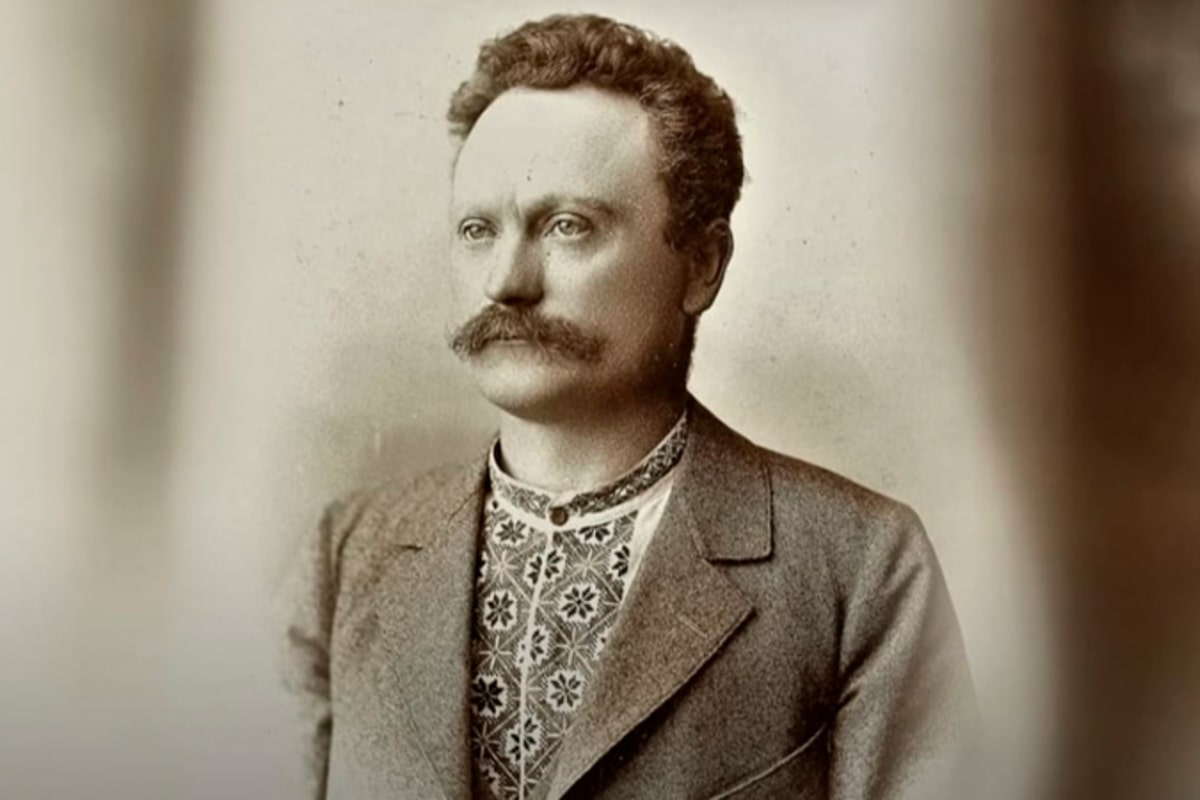Ivan Franko is one of the most prominent figures in the history of Ukrainian culture and literature. His life, full of challenges, creative searches, and social engagement, became a symbol of perseverance and genuine love for his people. Franko was not only a poet and writer, but also a philosopher, publicist, translator, and social activist. His activity spanned dozens of fields. If you want to know more about this remarkable personality, discover fascinating and little-known facts about Ivan Franko that you may not have heard before.
- Ivan Franko was born on August 27, 1856, in the village of Nahuievychi in the Lviv region, into the family of a blacksmith. His childhood passed in an atmosphere of hard work, which later became an important theme in many of his works.
- Franko knew a large number of languages, including Polish, German, Latin, Czech, Bulgarian, Hungarian, French, Italian, Hebrew, as well as Ancient Greek and Old Church Slavonic. Thanks to this linguistic proficiency, he became one of the outstanding translators of his era.
- During his student years, Franko was not only an excellent student but also an activist. He was arrested multiple times for revolutionary views, participation in public movements, and underground activities.
- Throughout his life, Ivan Franko was arrested four times. The first time he was imprisoned was in 1877, at just 21 years old, and during the Austro-Hungarian period, he was often persecuted for his political and literary beliefs.
- Franko is the author of more than 6,000 works, including poetry, prose, publicist articles, dramas, scientific and literary studies. Such versatility and productivity made him one of the most prolific writers in Ukraine.
- One of Franko’s most famous poetry collections is “Withered Leaves,” which reflects the author’s personal experiences, deep emotions, and inner struggles.
- Franko was the first Ukrainian to be nominated for the Nobel Prize in Literature, although he never received this honor. His candidacy was considered in 1915.
- The writer actively fought for the rights of peasants, workers, and teachers. He organized numerous societies, circles, collaborated with progressive figures of his time, and founded new periodicals.
- Franko was one of the founders of the Shevchenko Scientific Society, which became a center of Ukrainian science, culture, and education.
- Franko is also remembered as an outstanding playwright. His dramatic works, such as “Stolen Happiness,” “Stone Soul,” and “Prince Sviatoslav’s Dream,” became classics of Ukrainian theater and are still performed today.
- Fairy tales and stories for children occupy a special place in Franko’s work. His works for the youngest readers always stood out for their deep moral content and accessible style.
- Franko was not only a writer but also a journalist and editor, editing over 40 periodicals, including “Literary-Scientific Herald,” “Life and Word,” and “Public Friend.”
- His works on history, ethnography, folklore studies, economics, philosophy, and psychology played an important role in the development of Ukrainian humanitarian science.
- Franko translated into Ukrainian the works of classical world literature, including Dante, Goethe, Shakespeare, Heine, Homer, Mickiewicz, and Balzac. His translations are still considered exemplary works of literary translation.
- Friends, contemporaries, and students of Franko noted his exceptional work ethic. He could work 14–16 hours a day and often wrote at night when nothing distracted him.
- The writer’s personal life was not easy. His feelings for Olha Roshkevych, Józefa Dzvonkovska, and Olha Khoruzhynska left their mark on many works and became a reflection of the writer’s inner experiences.
- Franko traveled extensively, visiting different regions of Galicia, Bukovina, Kyiv, Volyn, as well as Vienna, Krakow, Prague, and Lviv, where he met with prominent figures of European culture.
- In the 1890s, Franko was deeply involved in political activities and became one of the co-founders of the Ukrainian Radical Party, the first political party on Ukrainian territory.
- Ivan Franko had four children, among whom was the well-known scholar Taras Franko. The Franko family went through many hardships, but left a significant mark in the history of Ukrainian culture.
- Franko dreamed of seeing Ukraine independent, and until his last days, he worked to awaken national consciousness. His creative legacy became a symbol of national revival and the struggle for freedom.
Fascinating facts about Ivan Franko show how immense his contribution was to the development of Ukrainian culture, literature, and society. His life inspires new generations to be active, honest, and hardworking, to value their native language, and to stand up for their beliefs. Franko left behind a rich creative heritage that remains relevant to this day, and his personality continues to amaze and inspire all those who seek to learn more about the history and spiritual world of Ukraine.





